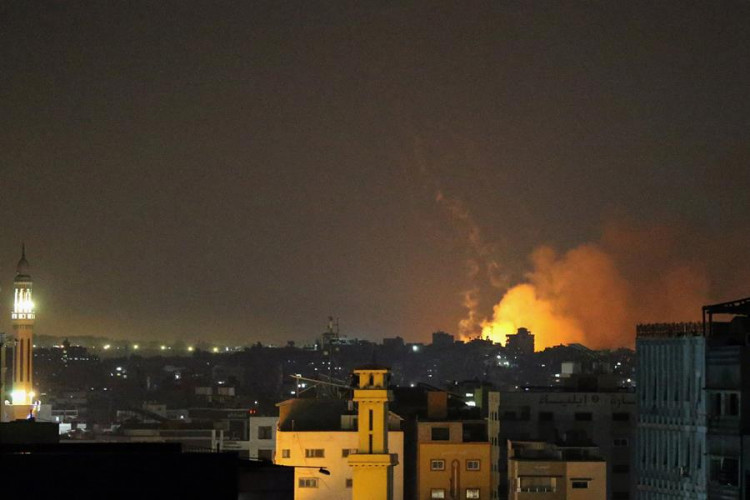A recent explosion at the Al-Ahli Baptist Hospital in Gaza, which resulted in a tragic loss of life, has been under intense scrutiny, with both international and domestic communities seeking clarity on the incident. The U.S. intelligence community, after an in-depth assessment, has concluded that Israel was likely not responsible for the blast that took between an estimated 100 to 300 lives.
An unclassified document shared by the Office of the Director of National Intelligence (ODNI) revealed that preliminary indications suggest Israel wasn't behind the explosion. This assertion was based on various sources, including missile activity reports, intelligence, and open-source imagery. "Israel Probably Did Not Bomb Gaza Strip Hospital," the assessment unequivocally stated, countering initial claims by Hamas that cited a death toll of over 500.
The document further details minimal structural damage to the hospital, pointing out only "light damage to the roofs of two structures near the main hospital building," but overall, the main building remained intact.
President Joe Biden, during his visit to Israel, had already expressed that the blast might have resulted from a misfired rocket by a terror group within Gaza. Aligning with this statement, the ODNI assessment hinted that the explosion might have been caused by an errant missile or rocket launched by the Palestinian Islamic Jihad (PIJ). However, they're still in the process of confirming this theory.
The National Security Council underscored the importance of transparent communication, given the regional allegations pointing towards Israel's involvement in the explosion. In a recent interview on "CNN This Morning," Deputy National Security Adviser Jon Finer highlighted the administration's intention to disseminate as much intelligence information as feasible. He remarked, "We will be sharing that information with our friends and partners in the region."
Further deliberations within the Biden administration revolve around the extent of raw intelligence to be declassified, especially given the significant implications it holds. It seeks to set an unambiguous narrative surrounding the unfortunate event and counter the prevalent claims that Israel caused the hospital blast.
However, given the rapidly cementing narratives in the Arab world, some former intelligence officials and current sources are skeptical about any potential impact of these revelations.
In a related development, Matt Miller, the spokesperson for the US State Department, criticized media outlets for hastily echoing Hamas's claims without thorough verification. He emphasized, "I saw a number of reports... that took Hamas's word at face value - the word of a terrorist organization."
When prompted by a reporter about the past skepticism surrounding U.S. and Israeli assertions post 9/11, Miller asserted that while Israel had presented substantial evidence regarding the errant rocket theory, Hamas hadn't provided any concrete evidence to support its claims against Israel.
As international debates continue, a bipartisan group of senators post a classified briefing echoed the sentiment of sharing as much intelligence as possible to clarify the situation and reduce tensions in the region.
With the latest intelligence assessment, the focus has shifted from assigning blame to addressing the humanitarian crisis in Gaza and ensuring the veracity of future incident reports.





